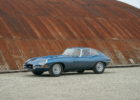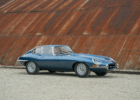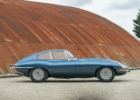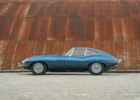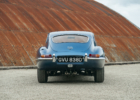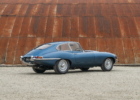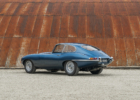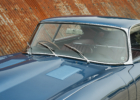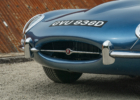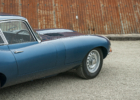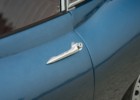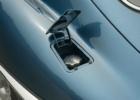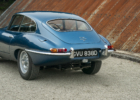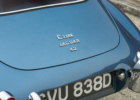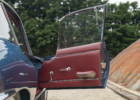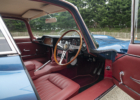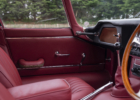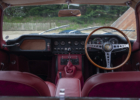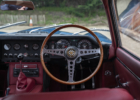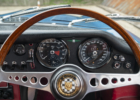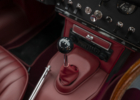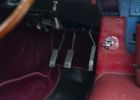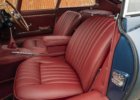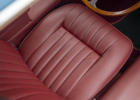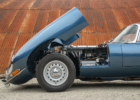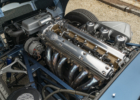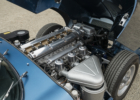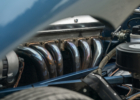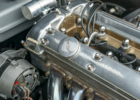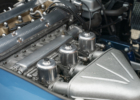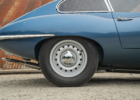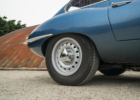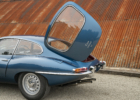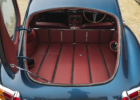1966 JAGUAR E-TYPE 4.2 FHC
- Original RHD UK-market car
- Fully restored at a total cost of over £178,000
- Few hundred dry miles since being completed
- Five-speed gearbox, plus upgraded brakes and cooling system
| YEAR | 1966 |
| MAKE | JAGUAR |
| PRICE | £135,000 |
VEHICLE DESCRIPTION
The Series 1 is the most coveted of all Jaguar E-types, and this superbly restored example benefits from a number of well-chosen upgrades.
Chassis number 1E 21426 was built on 7 September 1966 as a UK-market right-hand-drive car, and dispatched later that month via Henly’s London to a dealer in Ipswich. They sold it to its first owner, a JEA Nunn, and the Jaguar was registered NPV 1.
At some point, it must have found its way to the US because it was acquired there in 1981 by Dr Kurt Weiler – an internationally renowned scientist who had a long career that included stints at the National Science Foundation and the Naval Research Laboratory in Washington, DC.
Dr Weiler took the E-type off the road in the mid-1990s and kept it in dry storage. After he passed away in 2016, it was bought by an enthusiast who commissioned a complete restoration by Bristol Classic and Sports Cars Ltd.
This process involved stripping the car to bare metal and replacing areas such as the sills, rear wheelarches and floors before it was repainted in a striking shade of ‘Ecurie Ecosse’ blue and thoroughly rust-proofed. All mechanical components were rebuilt, including the rear axle and steering rack. The suspension gained polyurethane bushes throughout and adjustable Gaz dampers, while the rebuild of the matching-numbers engine encompassed cylinder-head work to make it compatible with unleaded petrol. A new wiring loom was installed, too.
A number of upgrades were specified, such as the replacement of the original four-speed gearbox with a Tremec five-speed unit. The cooling system was also upgraded with a Revotec fan and a high-flow radiator, while a stainless-steel exhaust was fitted and the brakes were improved via four-pot calipers at the front.
Inside, there is a bespoke full-leather burgundy interior, while the exterior is nicely finished off with a set of D-type-style Dunlop alloy race wheels. In total, more than £178,000 has been spent in order to bring the car up to its current standard.
Having covered only a few hundred dry miles since the restoration was completed, this Series 1 Jaguar E-type is offered for sale in exceptional condition and with a complete photographic record of its rebuild.
MODEL HISTORY
Following the E-type’s sensational launch at the 1961 Geneva Motor Show, Jaguar introduced a number of detail modifications as production got into its stride. After early milestones such as the introduction of more spacious footwells to replace the flat floors seen on the earliest E-types, the first really significant change came in October 1964, when the 3.8-litre, twin-overhead-camshaft, straight-six engine was replaced with an updated 4.2-litre version of the same unit.
The old Moss gearbox was dropped, too, and a new all-synchromesh, four-speed Jaguar gearbox fitted in its place. More comfortable seats were also used in the 4.2, plus improved electrics.
Elsewhere, the basic layout was retained. With its monocoque centre section and a subframe to carry the engine and front suspension, the E-type owed much to the legendary D-type sports-racer of the previous decade. Independent rear suspension was employed, and disc brakes were fitted all round. Two body styles were initially offered – a roadster and a fixed-head coupé – and a 2+2 model was added to the range in 1966.
When Motor Sport magazine tested a 4.2 E-type, they found that they were able to spend long periods at 110-130mph on Britain’s pre-speed-limit motorways. Editor Bill Boddy wrote: ‘The Jaguar E-type has been one of the world’s outstanding sports cars from the day it was first announced, representing quite extraordinary value-for-outlay and a high degree of driver satisfaction. In its latest form it is very near perfection.’
After an interim run of models that are now referred to as the ‘Series 1½’, the Series 1 was eventually replaced in 1968 by the facelifted Series 2, which carried over the 4.2-litre engine. Then, in 1971, came the Series III with an all-new V12 powerplant, and the final E-type was built in 1974.
ENQUIRE NOW
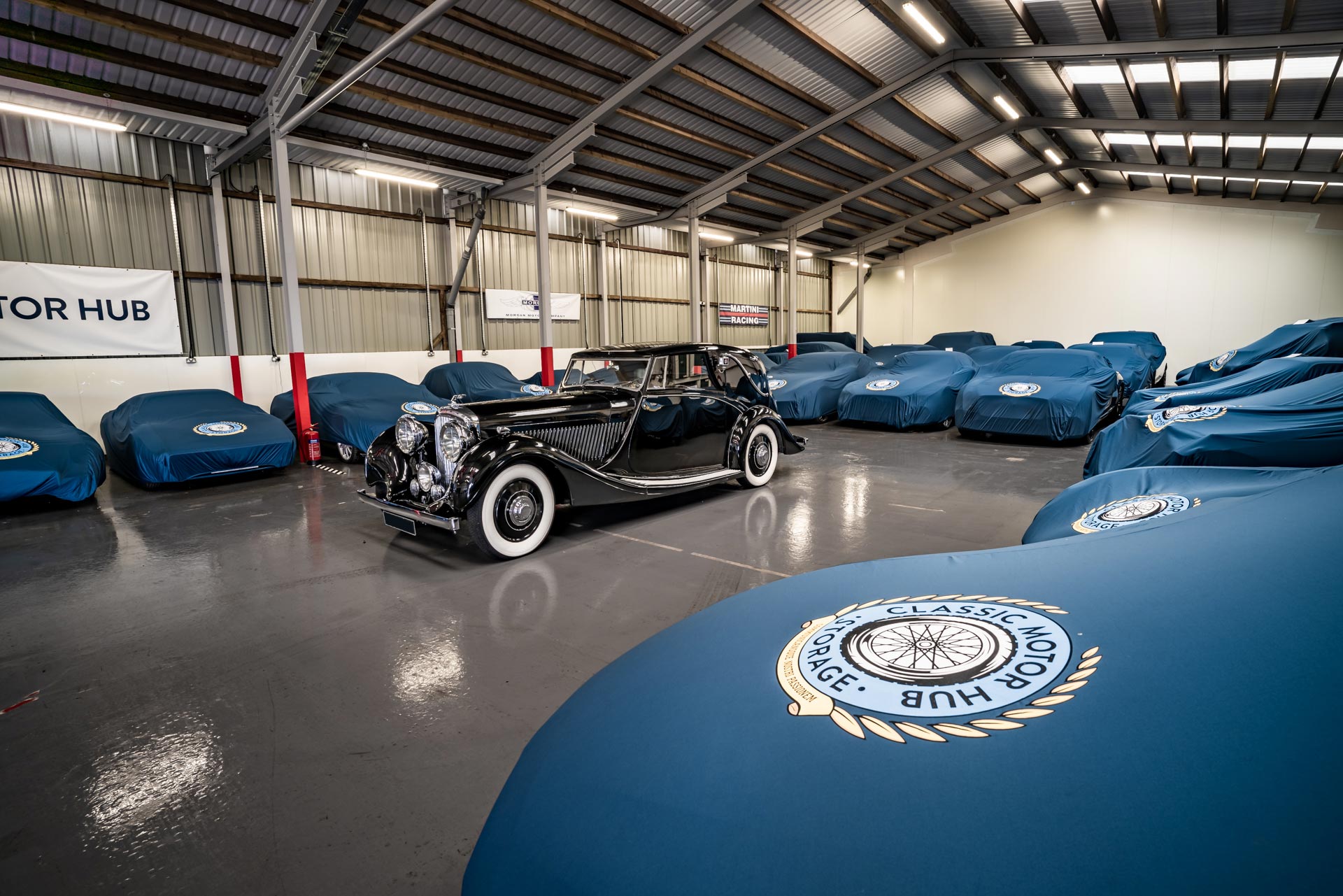
Car Storage In The Cotswolds
OXFORDSHIRE • GLOUCESTERSHIRE • COTSWOLDS


